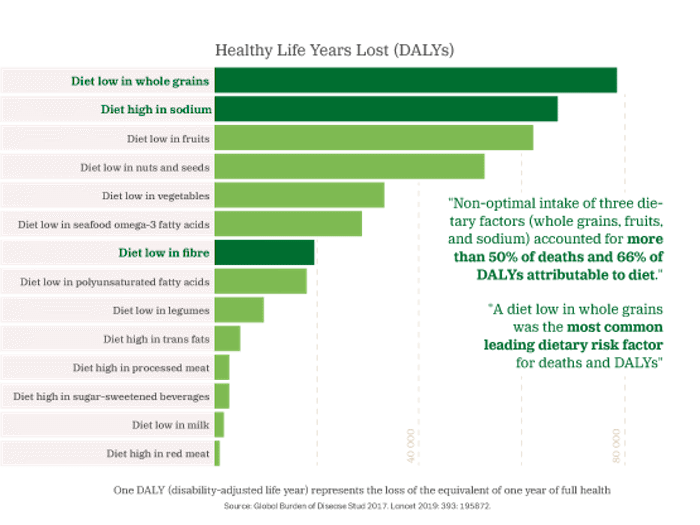
Lantmännen is an agricultural cooperative and Northern Europe’s leader in agriculture, machinery, bioenergy and food products.
Since the beginning of time, food and nutrition have been fundamental ingredients in human health, and for thousands of years bakery products, especially bread, have been part of human history. They play an essential role in our daily lives and are the symbol of culture, history, famine, wealth, war and peace. Bakery products are indispensable and have been key to human survival throughout time, being a staple in many cultures and representing currency in some cases.
Industrialized food production, rapid urbanization and changing lifestyles are transforming dietary patterns. People around the world tend to eat more saturated fat, sugar and salt than recommended by nutritionists. At the same time, as eating patterns change, people are eating fewer fruits and vegetables, and less dietary fiber such as whole grains, which are key components of a healthy diet. Salt, sugar and fat are other dietary factors that contribute to the burden of lifestyle-related diseases such as obesity and diabetes, which are on the rise – and need to be reduced.

One DALY represents the equivalent of one healthy life year lost.
Because 27 - 84% of whole grains in the diet come from bread. We focus on increasing the content of whole grains in wheat and rye breads.
Since 14 - 35% of the total fiber present in the daily diet comes from bread, we will increase the fiber content of our wheat bread and sandwich buns.
As 25 -35% of our daily dietary salt intake comes from bread, we reduce the salt content of our breads and sandwich buns.
Since sweets play an important role in the diet as a source of energy, we reduce the calorie content of our sweets and breads products.
Unibake sets out to positively impact public health by increasing the volume of healthier products by 2030.
Keeping our whole grain breads and other bread products delicious and tasty over time is a key priority for our innovation and quality teams. They work hard to improve the nutritional profile of our bread products by increasing the overall amount of whole grains and consequently fiber while slightly reducing the salt content. All while keeping the same great taste! Increasing the consumption of whole grains is one of our top priorities when it comes to baking for better health.







